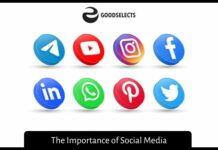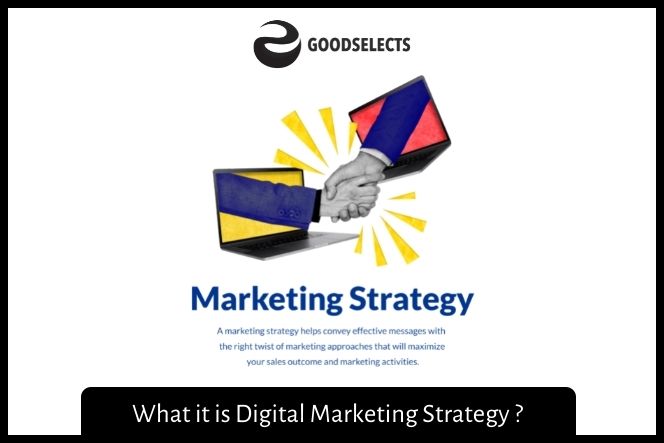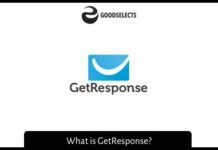If you aren’t sure where to begin when it comes to digital marketing strategy, this article is for you. You’ll learn about the SMART methodology, Customer personas, earned media, and social media marketing. These are all crucial parts of any successful marketing campaign. However, how do you choose the right ones for your business? Here are some tips to get you started. Once you understand the basics, you’ll be on your way to achieving the success you’ve always wanted.
SMART methodology
The SMART framework was developed by George T. Duran in 1981. It has been revised in recent years with ‘SMARTER’ goals (analyzed, revised, and tested), which is a more advanced version of the SMART goal. The goal is usually revisited at the end of a campaign. However, if the goal is to boost roller skate sales, a SMART goal is to increase those sales by four percent in six months.
Using the SMART method to set goals is useful in marketing rebranding efforts. A team might set an initial goal of doubling the following year’s follower base. Using the SMART method, they would determine how to achieve that goal, set up a timeline for reaching that goal, and study the trends of their customers. By identifying trends and customer preferences, a company can better plan how to communicate information and increase subscriber numbers.
The SMART methodology for digital marketing strategy includes setting goals, which are similar to vision boards. They are specific and measurable, and serve as a roadmap to success. SMART goals can be derived from a company’s business objectives, and digital marketing KPIs. Once these are defined, the SMART methodology can be applied to the creation of a successful digital marketing plan. So, what is SMART?
Setting goals is crucial for any marketing campaign. A SMART methodology helps create goals that are appropriate for your website and your business. Using the SMART system encourages team participation, which increases the chances of your goals being met. SMART also encourages open communication among team members, which ensures that team members keep each other updated about their progress and address problems before they become too large. The SMART framework is an effective approach for digital marketing strategy that can yield great results and make your efforts worthwhile.
SMART goals should have a deadline. If the goal isn’t time-based, it may be too vague and end up dragging out an initiative. By setting a deadline for each step, your team will be more motivated to reach the goal. It also allows you to assess the effectiveness of your marketing campaign. If you’re still not seeing results after reaching your goals, consider adjusting your strategy.
Customer personas
A customer persona is a fictional persona that represents a specific segment of the consumer market. It consists of the name, background details, and personality traits of a specific type of customer. The main purpose of customer personas is to develop a rapport with your customers and build a trustworthy relationship with them. This persona is developed through a thorough research process, which involves talking to real customers and asking them for their feedback.
Creating a buyer persona involves creating a fictional character to represent the ideal customer. This fictional persona represents a specific segment of your target market and acts as a frame of reference during your content creation and marketing strategy. In order to create a buyer persona, you must first conduct in-depth market research and analysis to understand your target customer and their needs. After creating your buyer persona, you can use the results of this research to tailor your marketing strategy to suit your target market.
Once you’ve identified the most relevant buyer personas, you can create a targeted marketing campaign based on their interests, characteristics, and purchasing habits. This will help you tailor your messaging, content, and products or services to meet these unique needs. Customer personas can also help you identify the unique needs of your target audience. A well-developed buyer persona will make your marketing efforts more effective and help you attract more customers.
Earned media
Earned media is the result of other marketing activities. Content is created, shared, and referenced. While social metrics are usually measured instantly, SEO driven data takes weeks or even months to produce a significant impact. Earned media helps you build a relationship with your audience and gain their trust. In return, they can become brand advocates for your business. Here are some ways to use earned media to your advantage.
Earned media can be considered the modern equivalent of word of mouth – gaining exposure and engagement without paying for it. Earned media results from quality content, good SEO practices, and content strategies. Paid media can also be used to promote content and drive traffic to owned media properties. Earned media is the most powerful form of marketing. Effective content marketing strategies will help you build a strong reputation among consumers and earn you a large share of these types of media.
Earned media consists of content that is relevant to your brand, industry, or niche. Earned media can be organic, the product of outreach or promotion, or both. Paid media can be useful for some business types, while earned media can be used to supplement your marketing efforts. For example, if you publish an infographic and share it on social media, you have earned media, but if you pitch it to an editor, you are using paid media.
As you can see, earning media is an important part of a digital marketing strategy. Whether it is through online or offline media, earned media can be extremely valuable for a business. For example, Delta’s paid ad encourages people to take pictures with travel backgrounds. Delta hopes that these photos will then get shared online, and the brand will get a mention. In addition, paid media can help build a brand’s reputation.
Social media marketing
With so many opportunities to reach out to your target audience, social media marketing is an essential part of your online strategy. It helps you to increase your brand’s visibility and boost customer loyalty. In addition, social media can help you generate word-of-mouth marketing, so it’s important to know when to post for maximum visibility. The following are some benefits of social media marketing. Let’s look at each one in more detail.
Content should be original and related to the overall marketing strategy. Share original content to increase organic reach, build your brand’s credibility, and attract better-qualified leads. Establish a social media strategy and allocate time to manage different channels. Get your executives, legal team, and marketing and sales to set goals for each channel. Be sure to have a content policy in place as well. It’s also a good idea to involve employees in social media marketing as this can enhance employee engagement and improve customer experience.
Consider which social media sites are the most popular. You’ll have to choose the ones that best fit your target audience and brand. The social networks are easy to use, and some offer paid advertising options as well. Consider these benefits before you begin your social media marketing strategy. The benefits of social media are many. Moreover, you can reach a wider audience and learn more about your target audience. The right content can lead to higher conversions.
Research competitors’ social media presence to get a better idea of their approach. You can monitor their account handles and keywords and create lists of potential customers. To determine if you’re getting a larger number of new customers, monitor their share of voice. By tracking the number of new customers that they acquire, you’ll be able to gauge how effective your social media marketing strategy is. Once you have a decent idea of their strategy, you can begin building yours.
The benefits of social media for your business are numerous. Using it effectively can improve your customer service, increase brand awareness, and provide a more personalized experience. In addition, social media marketing is relatively inexpensive compared to other forms of advertising. Marketing teams also love using social media because it is convenient and easy to use. By posting links on Facebook, Twitter, or Instagram, you can drive traffic to your brand’s website, promote your blog content, or offer a new landing page. Finally, social media is an invaluable tool for building relationships with your audience.




































